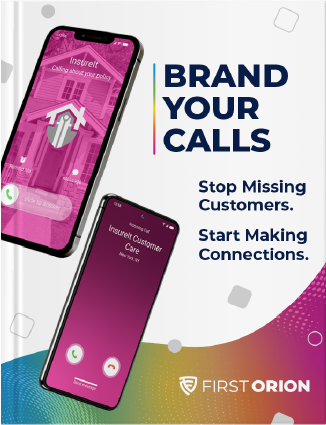Happy Tax Day! For all of you that received that big fat refund check, congratulations! For those that owe money… our condolences.
Even if you’ve already filed your taxes – and spent that return – you could still be targeted past the due date. Scammers rely on intimidation tactics, so they’ll be taking advantage of one of the most intimidating money days of the year. In the coming weeks, scammers will target thousands of U.S. citizens and try to trick them into thinking their taxes were wrong, they owe more, or that they haven’t received payment at all. The more you know about the filing process, tax laws, and known scams, the better prepared you’ll be against these calls.
Every year there are annoying calls and copious amounts of spam emails, but scammers are stepping up their game this year to try and steal your identity. According to our survey statistics, four times as many people have received scam calls within the last week as compared to the same study conducted in 2015. Millennials were found to be far more prone to these phone scams, giving out more sensitive information than baby boomers last year.
The IRS has published a list of tax scams to be aware of such as the “ghost” tax prepping scam where honest people file their taxes, but the preparer refuses to sign the tax return. Another more common scam is an email claiming to be from the IRS with a link to a fake page where users are tricked into entering personal information. Often times, clicking on the link can download malware onto computers that can track keystrokes to determine sensitive passwords and even let the attacker control the computer.
One dangerous scam includes the breach of many tax professional’s files. Hackers gain access to people’s information and file the taxes. Once the refunds are deposited, the scammers contact the victim to tell them the refund was deposited as an error and to forward the money to their “collection agency.” This scam also has many different, evolving versions that you can stay updated with on the IRS’s website.
As always, there are always a few things to remember when it comes to tax fraud:
- The IRS doesn’t call you directly. You’ll receive most correspondence – especially the first few rounds – via mail. Even if your caller ID says it’s the IRS, it probably isn’t. Scammers are using number spoofing technology to make their calls seem more legit. Email, text, or social media message from the IRS? Yeah, they don’t initiate contact with those either.
- The IRS doesn’t take prepaid debit cards. Or gift cards. Or iTunes credits. We can’t believe we have to say this, but they are running a legitimate operation that prefers funds from traditional sources. If someone demands that you fill up a card and send them the number, they are NOT a legitimate collector.
- If someone uses your SSN to file before you do, you’ll get a letter. The IRS might think you’ve already gotten a refund, so they’ll send a notice or letter saying more than one return has been filed for you. Contact the Internal Revenue Service directly to report the fraud, and send them this form or a police report to get the ball rolling.
- Watch for the warning signs. If you DO get legitimate contact from the IRS, it could be for a few different reasons: more than one tax return was filed for you, you owe additional tax, have a refund offset or have had collection actions against you for a year you did not file, or IRS records indicate you received wages or other income from an employer for whom you did not work. All of these claims could mean someone has used your social to commit tax fraud.
Reduce your risk of tax fraud by being diligent about protecting your identity (we’re looking at you, millennials). Learn to recognize and avoid phishing emails, threatening calls and texts from thieves posing as your bank, credit card companies, or the IRS. If it seems fishy, don’t be afraid to hang up before they even ask for your information.
And of course, download PrivacyStar to protect yourself from known scammers. You can get it for free on Google Play and the App Store.




